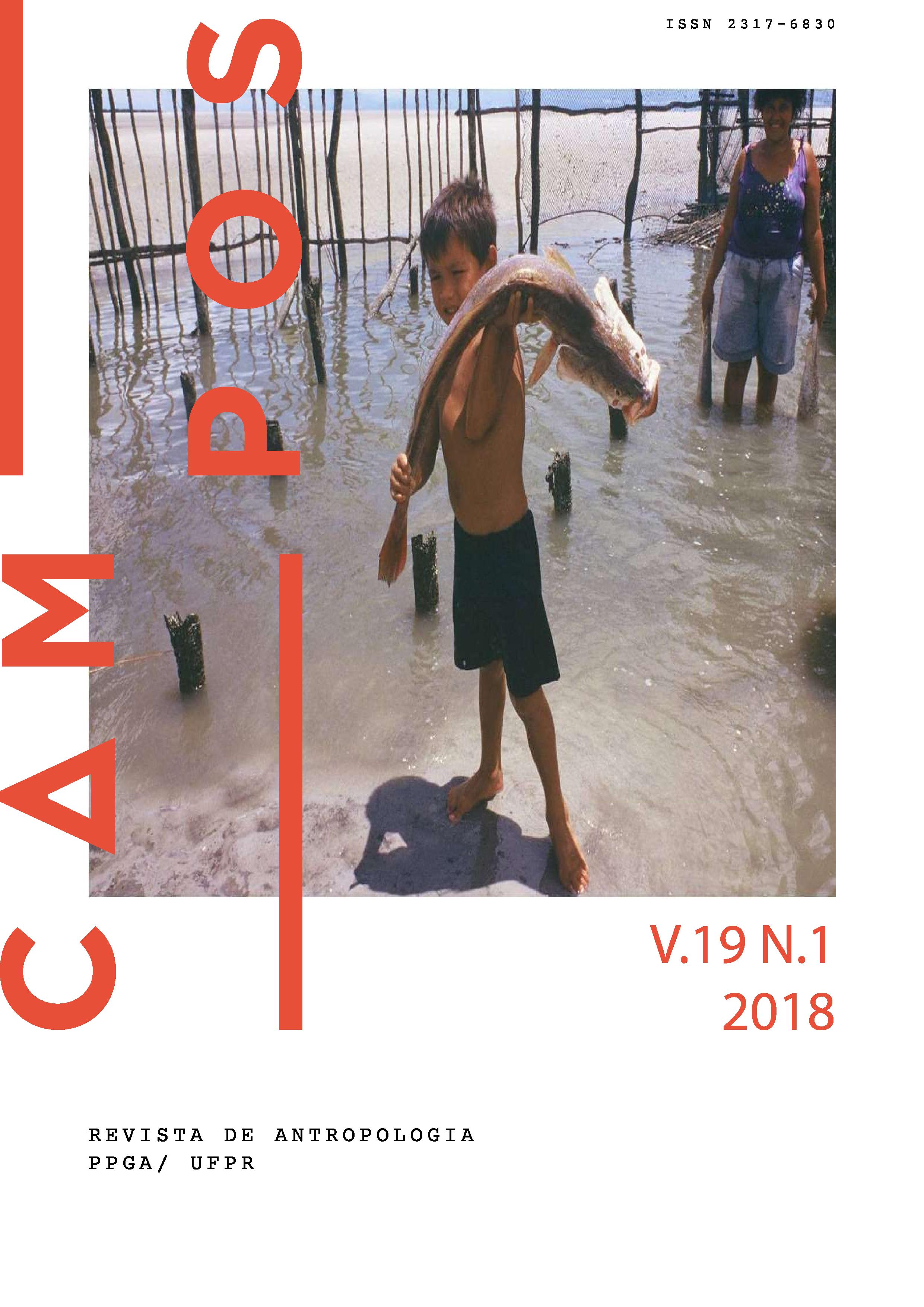Percebendo o ambiente na Lapônia finlandesa
DOI:
https://doi.org/10.5380/cra.v19i1.55908Palavras-chave:
Antropologia, ambiente, conhecimento, tradiçãoResumo
O artigo, a partir da etnografia da vida de agricultores da etnia Sami, moradores da Lapônia finlandesa, discute a ideia de "tradição" e a forma como conhecimentos sobre o ambiente são produzidos. Escapando da dualidade tradição x modernidade, cuja oposição é construída, afirmam os autores, em termos incomensuráveis frente à experiência vivida das pessoas, o que se propõe é uma forma de falar sobre tradição que soe mais consonante com as sensibilidades locais. Desta perspectiva, um conhecimento que se pretenda tradicional, para os autores, não é aquele que é transmitido como parte de um “modelo cultural” recebido do passado para a interpretação da experiência presente (que eles chamam de "modelo genealógico"), mas sim extraído dos contextos interativos nos quais as pessoas tornam-se conscientemente atentas da sua particular habilidade de conhecer. Assim, os grupos locais não só aplicam seu conhecimento na prática, mas, antes e fundamentalmente, conhecem por meio da sua prática.
Referências
BJERKLI, B. 1996. “Land use, traditionalism and rights”. Acta Borealia 13(1): 3-21. https://doi.org/10.1080/08003839608580444
HARRIS, M. 1998. “The rhythm of life on the Amazonian floodplain: seasonality and sociality in a riverine village”. Journal of the Royal Anthropological Institute 4(1): 65-82. https://doi.org/10.2307/3034428
HIRSCHFELD, L.A. & GELMAN, S. A. 1994. “Towards a topography of mind: an introduction to domain specificity”. In: Hirschfeld, L. A. & Gelman, S. A. (orgs). Mapping the mind: domain specificity in cognition and culture. Cambridge: Cambridge University Press. https://doi.org/10.1017/cbo9780511752902
HUBER, T. & PEDERSEN, P. 1997. “Metereological knowledge and environmental ideas in traditional and modern societies: the case of Tibet” Journal of the Royal Anthropological Institute 3(3): 577-98. https://doi.org/10.2307/3034768
ILO (International Labour Organization). 1989. “Indigenous and tribal peoples in independente countries”. In: Convention 169. Geneva: ILO.
INGOLD, T. 1996a. “The history and evolution of bodily skills”. Ecological Psychology 8(2): 171-82.
INGOLD, T. 1996b. “The optimal forager and economic man”. In: Descola, P. & Palsson, G. (orgs). Nature and Society: anthropological perspectives. London: Routledge.
SUCHMAN, L. 1987. Plans and situated actions: the problem of human-machine communication. Cambridge: Cambridge University Press.
TURNBULL, D. 1993. “Local knowledge and comparative scientific traditions”. Knowledge and Policy 6: 29-54. https://doi.org/10.1007/bf02696281
Downloads
Publicado
Como Citar
Edição
Seção
Licença
Autores que publicam nesta revista concordam com os seguintes termos:
1 Autores mantém os direitos autorais com o trabalho publicado sob a Creative Commons - Atribuição-NãoComercial 4.0 Internacional (CC BY-NC 4.0) que permite:
Compartilhar — copiar e redistribuir o material em qualquer suporte ou formato.
Adaptar — remixar, transformar, e criar a partir do material.
De acordo com os termos seguintes:
Atribuição — Você deve dar o crédito apropriado, prover um link para a licença e indicar se mudanças foram feitas. Você deve fazê-lo em qualquer circunstância razoável, mas de nenhuma maneira que sugira que o licenciante apoia você ou o seu uso.
Não Comercial — Você não pode usar o material para fins comerciais.
2 Autores têm autorização para distribuição, da versão do trabalho publicada nesta revista, em repositório institucional, temático, bases de dados e similares com reconhecimento da publicação inicial nesta revista;
3 Os trabalhos publicados nesta revista serão indexados em bases de dados, repositórios, portais, diretórios e outras fontes em que a revista está e vier a estar indexada.



